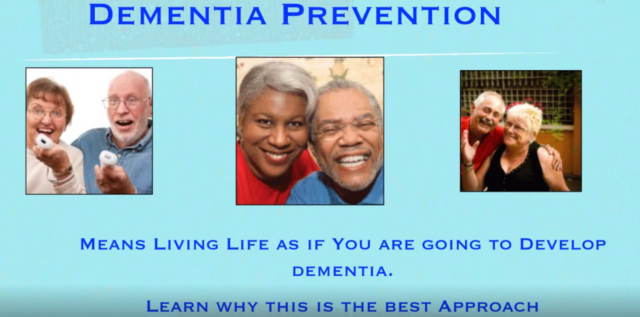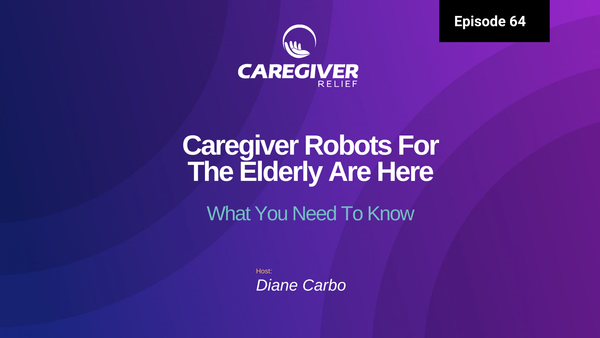Dementia Prevention: Building Your Brain's Defense System for Cognitive Well-being
Learn about the latest research on the causes of dementia and how to reduce your risk by making lifestyle changes. Discover the difference between avoidable and unavoidable risks, and how to improve your cognitive health as you age.

Welcome to our webinar on Dementia Prevention, presented by Caregiver Relief. Today, we'll discuss the concept of living life with the mindset that you might develop dementia and explore why this approach is crucial. While a cure for dementia remains elusive, research indicates that certain types can be prevented or their occurrence reduced. Although Alzheimer's disease rates remain unchanged, there's promising news from the University of California's 90-Plus Study conducted in Irvine. This study focuses on the fastest-growing demographic in the US: individuals aged 90 and above.
Understanding Avoidable and Unavoidable Risk Factors
Dementia risk factors can be categorized as avoidable and unavoidable. Unavoidable risks include genetics, where familial connections to Alzheimer's have been found. Notably, carriers of the Alzheimer's gene might not always display symptoms, yet the presence of Alzheimer's neuropathy in their brains is more likely.
Age is another factor that significantly affects dementia risk. Around 10% of individuals over 65 develop some form of Alzheimer's, with this risk doubling every five years after that. Interestingly, the 90-Plus Study revealed an age-dependent increase in dementia incidents, particularly among women over 90.
Childhood injuries, especially head injuries causing extended periods of unconsciousness, are unavoidable risk factors. These injuries, particularly severe ones, can elevate future dementia risk.
What Are Avoidable Risk Factors?
Addressing Avoidable Risk Factors
Avoidable risk factors contribute to higher dementia risk, but they can be managed. Factors such as a high-fat diet, engaging in high-risk activities prone to head injuries, chronic stress, sedentary lifestyles, and social isolation can increase dementia risk. Smoking, alcohol abuse, lack of sleep, neglecting seatbelts, and jobs lacking mental and social stimulation are also significant contributors.
Empowering Your Brain's Defense System
Fortunately, you can build defenses against dementia through lifestyle choices. Understand your family's medical history, focusing on conditions like vascular disease, diabetes, obesity, and hearing loss that contribute to dementia. Prioritize heart health, manage blood pressure, treat depression and anxiety, and consume a diet rich in fruits, vegetables, and omega-3 fatty acids.
Engaging in regular physical activity benefits your brain and heart. Maintaining an active mind with stimulating activities and pursuing lifelong learning can delay dementia onset. Social interaction, quitting smoking, and developing hobbies that involve hand use further enhance your defense system. Stress management techniques like mindful meditation and breathing exercises can foster cognitive health.
Mindfulness for Cognitive Well-being
Mindfulness, characterized by increased self-awareness in thoughts and actions, contributes to dementia prevention. It aids both caregivers and individuals with dementia by promoting cognitive function, reducing stress, and enhancing the overall quality of life. Regular physical exercise is a cornerstone of dementia prevention, with studies showing its benefits in maintaining cognitive abilities.
Balance and Falls Prevention
Maintaining balance is essential to prevent falls, which significantly impact the elderly brain's health. Activities like yoga, Tai Chi, and Qi Gong promote balance, concentration, and stress reduction. Resistance training supports muscle tone and guards against falls.
Embrace a Brain-Healthy Lifestyle
Engaging in activities that challenge your mind, such as learning a new language, playing musical instruments, or practicing memory-enhancing activities, contributes to brain health. While supplements' efficacy remains debatable, adopting a holistic diet is more effective.
What is Good For the Heart is Good for the Brain
In conclusion, adopting a dementia prevention mindset involves understanding and mitigating both avoidable and unavoidable risk factors. A heart-healthy lifestyle, mindfulness, physical activity, and cognitive engagement play pivotal roles in delaying or preventing dementia. Remember that every choice you make contributes to building your brain's defense system against this challenging condition.
All of our guides, downloads, worksheets, Premium courses
Click Subscribe To Get Started.
Our Resources section can help you find the information and tools that you need. We have courses, videos, checklists, guidebooks, cheat sheets, how-to guides and more.
You can get started by clicking on the link below. We know that taking care of a loved one is hard work, but with our help you can get the support that you need.
Click here to go to Resources Section now!
You might also like this article:







